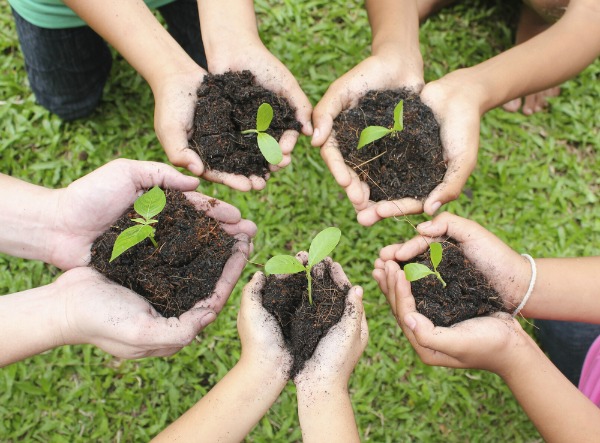Gardens are not made by singing ‘Oh, how beautiful!’ and sitting in the shade.
― Rudyard Kipling
The act of planting a garden – working the soil, tending to the plants and reaping the bounty is a time-honored tradition that has slowly morphed from necessity to hobby. Over the last 100 years, America’s industrialization and urban expansion have eliminated the need for gardens in most households. Unfortunately, some apartment dwellers are packed so close together that growing basil in a pot on the windowsill is the closest they’ll get to a harvest.
Today we’re highlighting two programs that teach gardening skills in the United States. Though the “participants” are very different, they all receive benefits that go far beyond the eventual food a garden yields.
Prison Garden
Last week, the National Public Radio (npr) website ran a story about several minimum security prisons that have developed their own vegetable gardens thanks in part to the Insight Garden Program. Inmates who qualify for the program are allowed to work outside where they tend to a small area of raised beds that grow everything from tomatoes to lettuce. Beth Waitkus, Director of the Insight Garden Program said she created this endeavour after the tragedies of 9/11 to, “restore her faith in humanity.”
Why it’s a good idea:
- Inmates are exposed to sunshine and fresh air
- Connecting with nature has a calming affect
- Programs have been known to significantly decrease recidivism (re-offending)
- A garden can be a place of solitude and reflection
- Selling the produce to the community reduces the cost the state pays to feed and house each inmate
- Extra produce can be donated to food pantries and shelters
Public Schools
The Biggest Loser recently aired a story about Teaching Gardens, a program sponsored by the American Heart Association. Funded by private donors and local sponsorship, the program provides committed schools with all the tools and supplies they need to start a small garden including organic soil. On “Planting Day,” the school celebrates with a visit from local Teaching Garden staff who offer planting tips, cooking demonstrations and other activities. Along with teachers, and parent volunteers, students not only learn where fruits and vegetables come from, they experience it.
Why it’s a good idea:
- Studies have shown that children are more likely to eat vegetables they have planted
- It provides outdoor exercise
- Healthy eating improves concentration
- Learning to garden at a young age boosts interest in gardening later on
- Improves social and interpersonal skills
- Caring for plants teaches responsibility
Also Read
6 of January’s Healthiest Produce Picks
Pasta with Roasted Garden Vegetables
The Dark Side of Juicing. Why Too Much Juice Can Get In The Way Of Your Health


